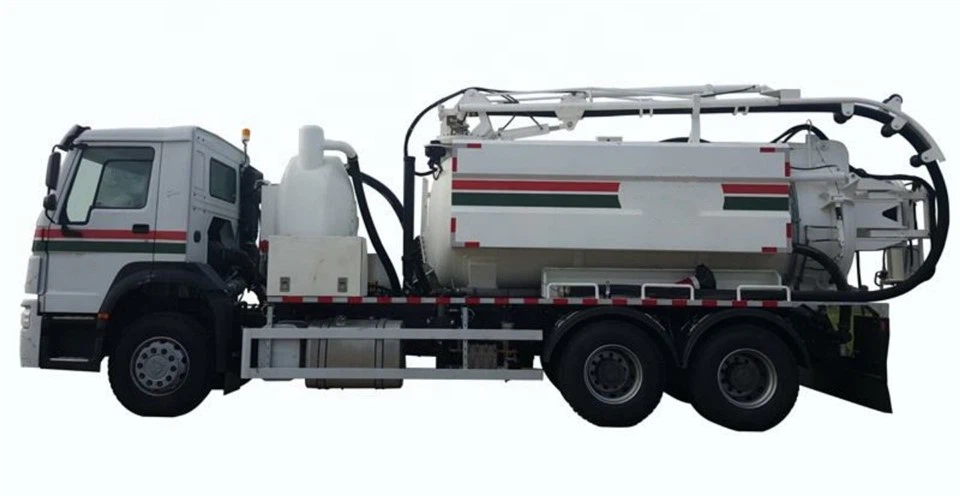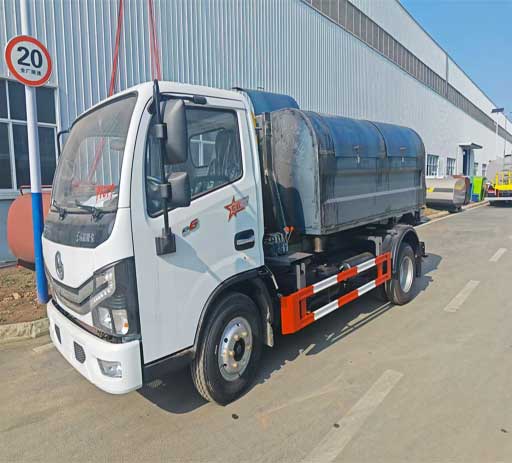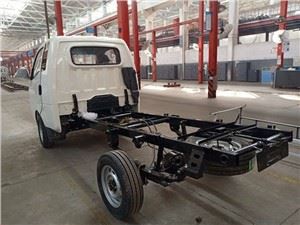Understanding Trucks with Hooks: A Comprehensive Guide

Trucks with hooks, often referred to as hook lift trucks, are essential vehicles in various industries, including waste management, construction, and transportation. Their unique design allows them to interchange loading systems quickly and efficiently. This article aims to provide an in-depth look at trucks with hooks, their features, advantages, applications, and tips for selecting the right one for your needs.
What is a Truck with Hook?
A truck with a hook is a type of vehicle equipped with a hook lift system. This system consists of a hydraulic mechanism and a hook that can lift and carry different containers or loads. These trucks are popular in industries that demand versatility, as they can transport various types of materials and waste.
Key Components of a Truck with Hook
Understanding the key components of a truck with hook is essential. Here are the main parts:
- Hook Lift System: This is the heart of the truck. It consists of a hook, hydraulic arms, and a base that allows the lift of containers.
- Chassis: The base structure that supports the vehicle, ensuring stability and strength.
- Hydraulic System: Powers the hook and lift, allowing for easy operation and smooth lifting.
- Container: Various containers are designed to fit the hook system, allowing for the transport of different loads.
Types of Hook Lift Trucks
1. Standard Hook Lift Trucks

These trucks typically have a fixed hook lift system. They are commonly used for transporting standard containers and are a staple in waste management and logistics.
2. Heavy-Duty Hook Lift Trucks

Built for rugged use, heavy-duty hook lift trucks can handle larger and heavier loads. They are often employed in construction and industrial applications.
3. Compact Hook Lift Trucks
Compact designs allow for maneuverability in urban areas where space is a concern. These trucks are ideal for smaller loads and tighter job sites.
Advantages of Using Trucks with Hooks
1. Versatility
One of the primary benefits of hook lift trucks is their versatility. They can handle various containers, making them suitable for multiple applications.
2. Efficiency
The ability to quickly load and unload different containers improves operational efficiency, saving time and reducing labor costs.
3. Cost-Effective
By eliminating the need for multiple vehicles, hook lift trucks can be a more cost-effective solution for businesses requiring diverse transportation capabilities.
Applications of Trucks with Hooks
1. Waste Management
Trucks with hooks are commonly used in waste management for transporting dumpsters and other waste containers.
2. Construction Sites
In construction, these trucks facilitate the movement of materials, debris, and equipment, ensuring a cleaner job site.

3. Landscaping
Landscaping companies often use hook lift trucks to transport soil, plants, and other materials efficiently.
4. Agriculture
Agricultural businesses can use hook lift trucks to haul hay, mulch, and other agricultural products.
How to Choose the Right Hook Lift Truck
1. Understand Your Needs
Consider what types of loads you will be transporting and the typical environment you operate in. This understanding will guide you to the right size and type of truck.
2. Weight Capacity
Check the weight capacity of the truck to ensure it can handle your heaviest loads.
3. Hook Lift Compatibility
Ensure the hook lift system is compatible with the containers you intend to use regularly.
4. Fuel Efficiency
Choose a truck that offers good fuel efficiency to help reduce operating costs over time.
5. Maintenance and Support
Look for manufacturers that provide comprehensive support, including maintenance services and availability of spare parts.
Practical Tips for Using Trucks with Hooks
1. Regular Maintenance
Perform routine maintenance checks on your hook lift truck to ensure it operates smoothly. This includes checking hydraulic fluid levels, inspecting the hook and lift system, and looking for any wear and tear.
2. Training Operators
Ensure that all operators are properly trained in using the hook lift system, understanding its capabilities and limitations for safe operation.
3. Load Distribution
Maintain proper load distribution to prevent tipping or instability during transport. Always distribute weight evenly across the container.
4. Follow Safety Protocols
Adhere to safety protocols, including securing loads properly and using backup alarms when necessary to prevent accidents.
Cost Considerations for Truck with Hook
When purchasing or leasing a truck with a hook, several cost factors need consideration:
| Cost Factor | Description |
|---|---|
| Purchase Price | The initial cost of the truck. |
| Insurance | Cost of insuring the vehicle. |
| Maintenance Costs | Regular service and parts replacement expenses. |
| Fuel Costs | Ongoing fuel expenses based on usage. |
| Depreciation | Loss of value over time. |
Environmental Impact of Using Hook Lift Trucks
Hook lift trucks can have both positive and negative impacts on the environment. On the positive side, they facilitate efficient waste management and reduce the number of vehicles needed on the road. However, it is crucial to operate them responsibly to minimize emissions and environmental harm.
FAQ
1. What is a hook lift truck used for?
Hook lift trucks are primarily used to transport various containers and loads, making them ideal for waste management, construction sites, landscaping, and more.
2. How does the hook lift system work?
The hook lift system consists of a hook attached to a hydraulic arm. The hook can lift containers by sliding them onto the truck bed and then secured for transport.
3. What types of containers can be used with hook lift trucks?
Various containers, including dumpsters, flatbeds, and specialty containers for specific materials, can be used with hook lift trucks.
4. Are hook lift trucks fuel-efficient?
Fuel efficiency can vary based on the model and usage. It is crucial to choose a truck designed for optimal fuel consumption.
5. Can I get financing for a hook lift truck?
Yes, many manufacturers and dealerships offer financing options for purchasing hook lift trucks.
6. How often should I service my hook lift truck?
Regular maintenance checks should be performed according to the manufacturer’s recommendations, generally every few months or after a certain number of operational hours.
